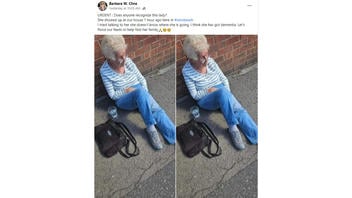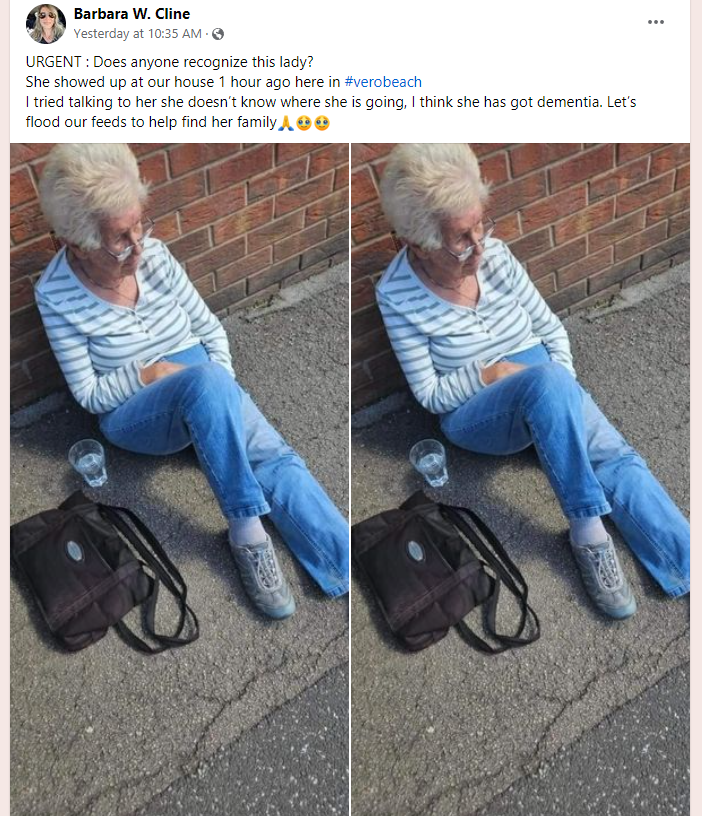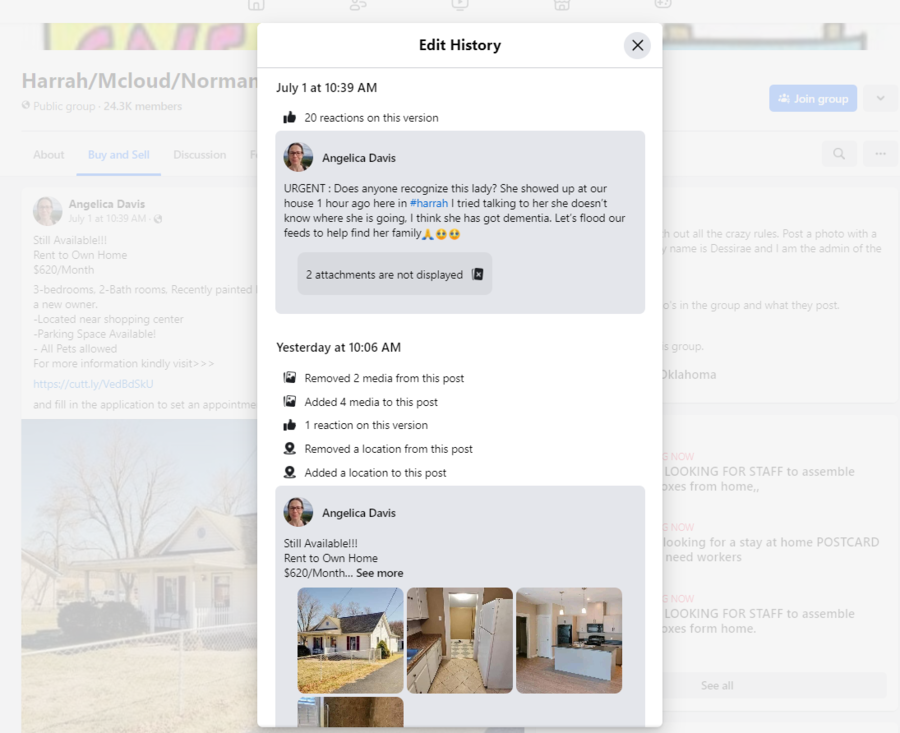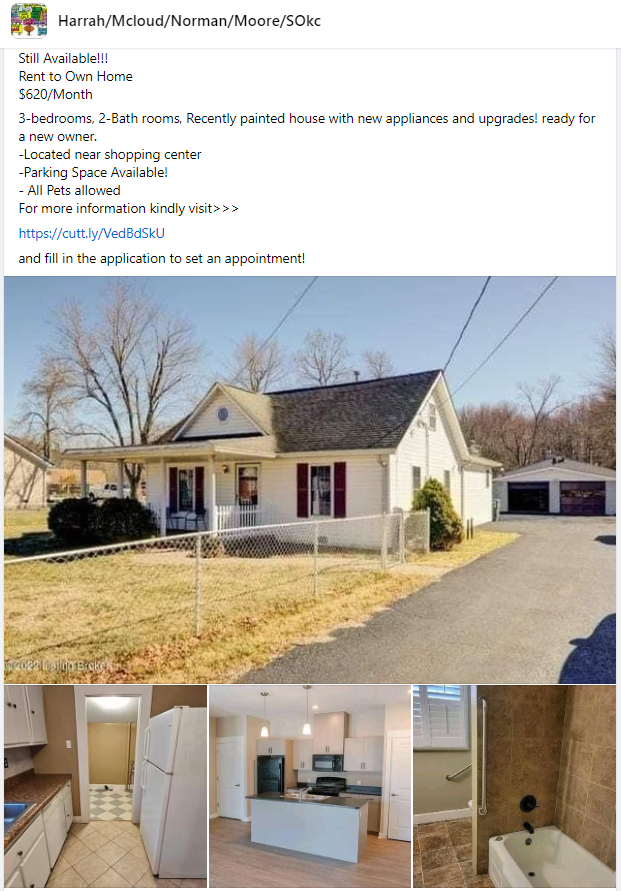
Did authentic social media posts offer genuine concern over a woman with dementia found in various locations? No, that's not true: Though the woman could not be identified, several posts claimed she was found in various cities across the U.S., Canada and the U.K. using the exact same format on June 30 and July 1, 2024. The posts are part of a known deception to trick people into sharing a post that will be later edited to show real estate listing scams.
The claim appeared in a post (archived here) published in the Facebook group Shop Local Vero Beach on July 1, 2024. It opened:
URGENT : Does anyone recognize this lady?She showed up at our house 1 hour ago here in #verobeachI tried talking to her she doesn't know where she is going, I think she has got dementia. Let's flood our feeds to help find her family
This is what the post looked like on Facebook at the time of writing:
(Source: Facebook screenshot taken on Tue Jul 2 17:01:20 2024 UTC)
Another post (archived here) published in garage sale Facebook group Harrah/Mcloud/Norman/Moore/SOkc on July 1, 2024, said she was in Harrah, Oklahoma. Before being edited, it read:
URGENT : Does anyone recognize this lady? She showed up at our house 1 hour ago here in #harrah I tried talking to her she doesn't know where she is going, I think she has got dementia. Let's flood our feeds to help find her family
Several other posts, all made on June 30 or July 1, 2024, claimed she was found in Waco, Texas; Atmore, Alabama; Fort Smith, Arkansas, Canada and more locations using the same picture and format. Lead Stories could not identify the woman pictured in this particular instance of the bait and switch. A reverse image search only resulted in versions of the scam post. It is possible that the woman pictured was once confused and lost, since previous instances of this tactic used existing photos of tragic events, such as of a missing child and an Amber Alert.
Real estate scam posts
Real estate scam posts are a tactic used on Facebook by spammers that employ bait and switch content to lure people into a scam. A post's creator will pair an alarming or heart-wrenching claim with a compelling image to catch people's attention -- missing children or aging adults, injured animals, injured people in hospital beds and sex trafficking tactics -- and drive engagement.
Once a post has garnered sufficient attention, the content switches to push a deceptive real estate advertisement. The wording and images of these eye-catching posts, typically seen on local Facebook "yard sale" pages," are frequently identical, even when the offered property is located in different cities, regions of the U.S. or countries.
The content switch is clearly documented by a post's edit history, which also notes additions or deletions of content. In some instances time stamps on the posts indicate when the switches were made but on some posts, timestamps don't change even though the content does.
Commonly, such posts use links that lead to landing pages with disclaimers or false promises, and contact information requests that can be used to gather personal data, including financial information, from people who follow the trails.
Some links purport to connect people to a U.S. Housing and Urban Development site to help them search for deals on foreclosed homes. Lead Stories found the links lead to new sites that carry disclosures at the bottom of the page that note they are "not affiliated with, endorsed, authorized, or approved by the Federal Government or the US Department of Housing and Urban Development.
Other Lead Stories fact checks about bait and switch scams can be found here.




















